How to Start a Polaris Sportsman 500?

The Polaris Sportsman 500 is a powerful and versatile all-terrain vehicle (ATV) that offers an exciting off-road experience. If you're new to ATVs and have just recently acquired a Polaris Sportsman 500, you may be curious about how to start it correctly and safely.
In this blog post, we'll provide a step-by-step guide on how to start a Polaris Sportsman 500 in eight easy steps, ensuring you're ready to hit the trails in no time! Whether you are a beginner or an expert, by following these steps, you can start your Polaris Sportsman quickly and smoothly, while also preventing potential issues or damage.
Let’s dive into it!
- Preparing for Starting
- 8 Steps on Starting Your Polaris Sportsman 500
- Troubleshooting Common Starting Issues
- Final Thoughts
Preparing for Starting
Before firing up your Polaris Sportsman 500, ensure you have all the necessary equipment close at hand. Here's a checklist of items you'll need:
- Polaris Sportsman 500 key
- Protective gear (helmet, gloves, goggles)
- Fuel
Check the Battery and the Fuel Level
Let's first take a look at the battery and fuel level of your Sportsman 500. This ensures your ATV has enough power and fuel to run.
To check the battery, you need to locate it under the front rack of your ATV. You can use a voltmeter or a multimeter to measure the battery voltage. The ideal voltage should be between 12.8 and 13.2 volts. If the voltage is below 12 volts, charge the battery with a compatible charger.
Next, ensure that your Polaris Sportsman 500 has enough fuel in the tank to start. Check the fuel gauge on your ATV's instrument cluster; it displays four bars that indicate the amount of fuel. Ideally, the gas level should be at least two bars or more. If the fuel level is lower than one bar, fill the tank with unleaded gasoline.
Safety precautions and tips for checking the battery and the fuel level:
-
Turn off the ignition switch and the kill switch before checking the battery or fuel level. Otherwise, you may get injured due to accidental ignition or electric shock.
-
Keep away from sparks, flames, or items that could ignite like cigarettes when you're inspecting or filling the battery or fuel tank. This helps to reduce the risk of causing a fire or an explosion.
- Don’t overcharge the battery or overfill the fuel tank. Overcharging can cause overheating and could potentially lead to an explosion, while overfilling the fuel tank may result in a fuel leak and significant fire risk.
Inspect the Polaris Sportsman 500
Now inspect your Polaris Sportsman 500 to ensure there are no damages or leaks. Inspect the tires, brakes, lights, and any other parts of your ATV that could affect the starting procedure.
8 Steps on Starting Your Polaris Sportsman 500

With preparations out of the way, it's time to start up your Polaris Sportsman 500.
Step 1: Ensure Your Polaris Sportsman Is in Neutral Gear.
The first thing you want to do is ensure your ATV is in neutral gear. Make sure that the gear selector is set to the neutral position. This is a crucial safety measure that prevents the vehicle from lurching forward when started.
Step 2: Turn On the Ignition and the Kill Switch.
Next, activate the kill switch and the ignition on your Polaris Sportsman 500. These are the devices that set the course for your ATV's power system.
To turn on the ignition switch, insert the key into the slot on the right side of the handlebar and turn it clockwise to the ON position. You should hear a succession of beeps, indicating that the electrical system is operating correctly.
When activating the kill switch, you need to push it down to the RUN position. The kill switch can be found on the left side of the handlebar.
Step 3: If Needed, Set the Choke and the Throttle.
Depending on the temperature and how long it has been since your last start, you may need to adjust the choke and throttle on your Polaris Sportsman 500.
The choke provides a richer fuel mixture for cold starts. If your Polaris Sportsman has been sitting in the cold, pull that choke out to the ON position. If it has been warming up a bit, push it back to the OFF spot. Remember that you'll find this handy little gadget on the left side of your handlebar.
Consult your owner's manual to determine the appropriate choke setting based on the temperature. Generally, for a cold start, you'll likely need to pull that choke lever or knob all the way out.
To adjust the throttle, rotate it clockwise to increase the speed or counterclockwise to decrease the speed. The throttle can be found on the right side of the handlebar.
Step 4: Turn the Fuel Valve On.
If your Polaris Sportsman 500 has a fuel valve, ensure that it is turned on. This allows the fuel to flow from the tank to the engine, enabling a successful start.
Step 5: Prime the Fuel, if Necessary.
To guarantee the right fuel flow, you'll need to prime the fuel system. Look for the primer bulb, usually found near the fuel tank or on the carburetor. Press and release the primer bulb several times until you feel some pushback. Doing so helps draw fuel into the system and get it all revved up for ignition.
Step 6: Start the Engine.
With the ignition engaged, fuel primed, and choke adjusted (if necessary), it's time to awaken your Polaris Sportsman 500!
Either press the starter button or tug on the recoil starter to start the engine. Position your thumb on the throttle lever, and gently press it while simultaneously pressing the electric start button, or use the kick-start if your model has one. Your engine should rev into action, creating a pleasing rumble.
Troubleshooting:
- If the starter button fails, inspect the battery voltage, fuse box, and wiring connections.
- If the recoil starter doesn’t work, check the spark plug, air filter, and carburetor.
- Should the engine not start after several attempts, cease trying to prevent damaging the starter or flooding the engine.
Step 7: Warm Up the Engine.
Once you've successfully ignited your Polaris Sportsman 500, let it idle for a bit to heat up. This warm-up phase permits the engine oil to circulate appropriately, guaranteeing optimal performance during your ride and extending the lifespan of the engine components.
Step 8: Check Controls Before Setting Out.
While the engine is idling before you hit the road, take some time to confirm that all controls are functioning as expected. This step keeps you safe by making sure everything operates as it should when navigating trails.
Test the throttle response by mildly revving the engine and then letting it go. Verify that both brakes are working smoothly and efficiently. Also, shift through all gears (if applicable) to ensure smooth transitions.
Troubleshooting Common Starting Issues
Starting your Polaris Sportsman 500 should be straightforward, but occasionally, you may encounter some issues. Take a look at some common problems and their solutions as follows.
Battery Issues
If you're having trouble starting your Polaris Sportsman 500, inspect the battery. Make sure it's connected correctly and the terminals are clean. If the battery is weak or dead, you may need to charge it or even replace it.
Fuel System Problems
If your Polaris Sportsman 500 either doesn't start or stalls right after starting, the problem could be with the fuel system. Inspect the fuel filter, lines, and carburetor for any clogs or blockages. Clean or replace these parts as necessary.
Ignition System Malfunction
In certain situations, a defective ignition system could be stopping your Polaris Sportsman 500 from starting. Check the spark plug and ignition coil for any signs of damage or wear. Replace any defective parts to guarantee a successful start.
Final Thoughts

Now that we've walked through how to start your Polaris Sportsman 500 and address potential troubles, you should be confident about starting it and hitting the trails! Review our guide whenever you need it.
For more tips and top-quality Polaris Sportsman accessories to make your ATV ride better, visit Kemimoto.com store today. See how we can elevate your off-roading experience and prepare you for even the most challenging adventures!


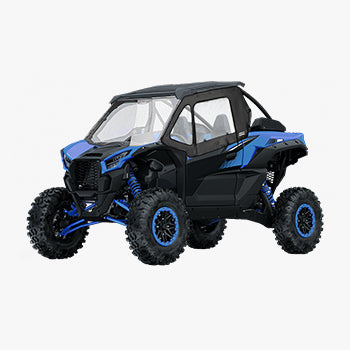

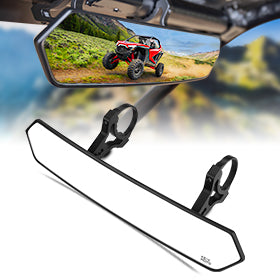
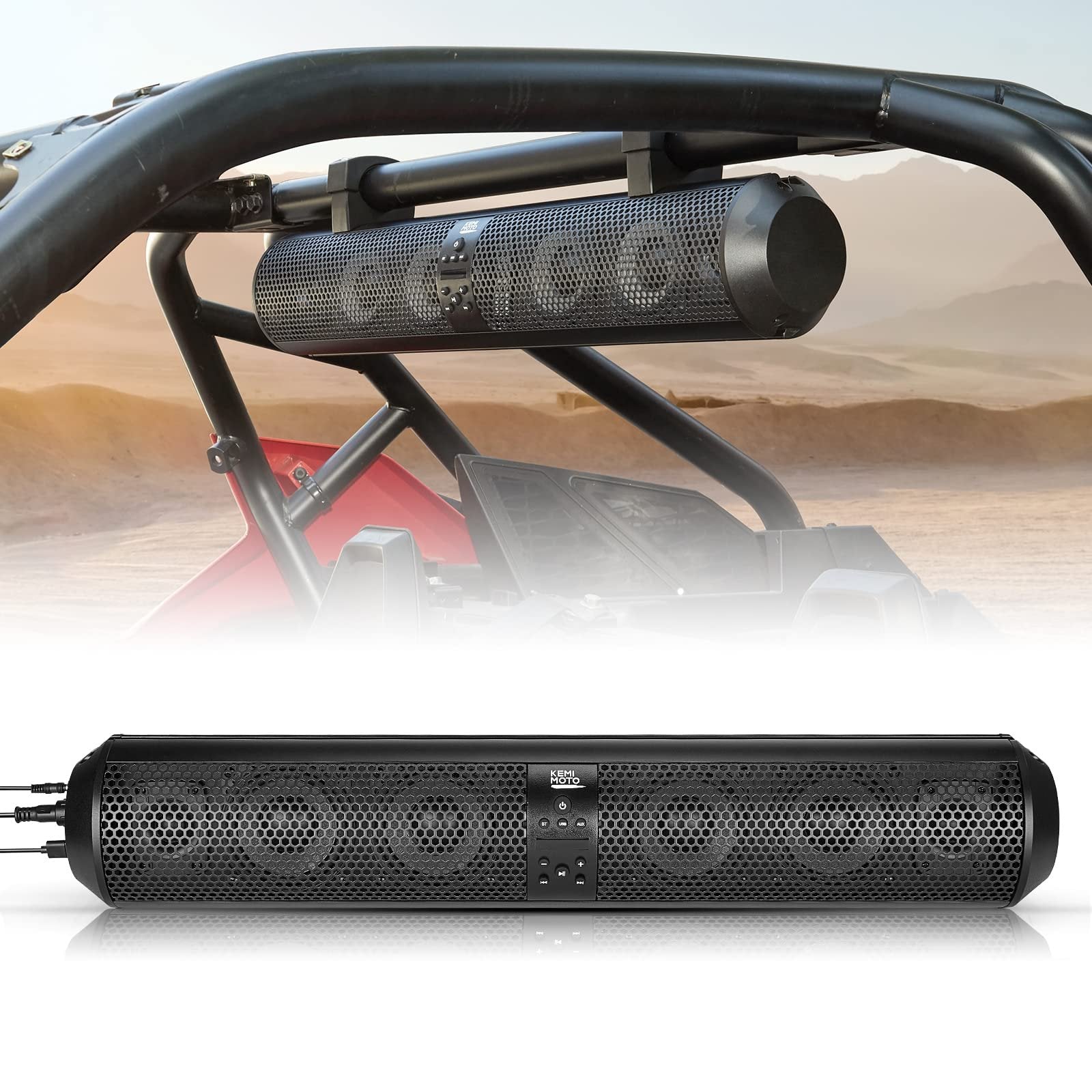




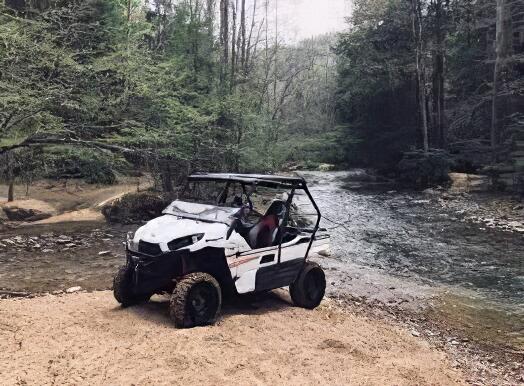
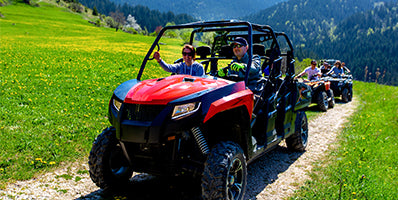
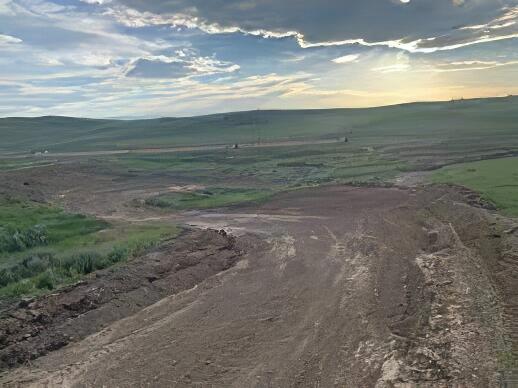
Laissez un commentaire